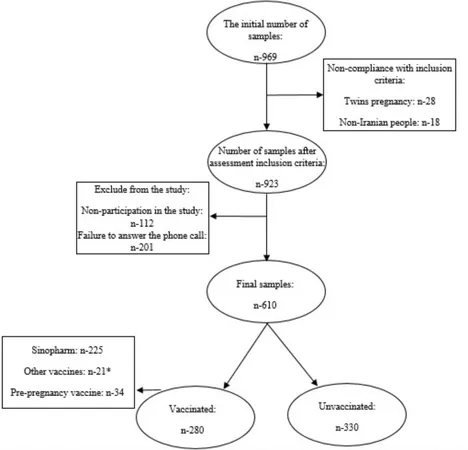
Unveiling the Truth: How COVID-19 Vaccination Affects Maternal and Neonatal Outcomes in Pregnant Women
2025-03-28
Author: Siti
In the fight against the ongoing COVID-19 pandemic, understanding the impact of vaccination on pregnant women and their newborns is crucial.
Research has consistently highlighted that pregnant women face heightened risks when it comes to contracting severe forms of COVID-19, primarily due to physiological immune system changes during pregnancy.
These women are more susceptible to complications such as pneumonia, ICU admissions, and even mortality compared to their non-pregnant counterparts.
The urgency for an effective vaccine tailored for this vulnerable population led to significant developments in COVID-19 vaccination strategies.
Initially, the vaccine trials for COVID-19 largely excluded pregnant women, raising questions and concerns.
However, as evidence of increased risks during the pandemic grew, vaccination programs expanded to include pregnant women, particularly emphasizing the safety and efficacy of various vaccine types.
By mid-2021, numerous vaccines, including mRNA, protein subunit, and inactivated viral vaccines, were authorized for emergency use in several regions worldwide.
A recent study conducted in Rafsanjan, Iran, sheds light on the maternal and neonatal outcomes of vaccinated versus unvaccinated pregnant women, encompassing critical factors such as hypertensive disorders, gestational diabetes, and neonatal health metrics.
The study, which observed over 600 pregnant women and utilized data collected from Iran’s Integrated Health System, offers insightful revelations.
The findings indicated that a daunting majority of pregnant women—over half—did not receive any vaccination.
Among those vaccinated, the Sinopharm vaccine was predominantly administered.
Notably, less than 30% received at least one vaccine dose during the first trimester, underscoring potential gaps in early vaccination drives.
When it comes to maternal outcomes, the study found no significant variance in conditions like hypertensive disorders or gestational diabetes between vaccinated and unvaccinated women.
However, vaccinated participants exhibited a markedly lower likelihood of experiencing miscarriages.
Receiving the Sinopharm vaccine, especially during the second trimester, demonstrated statistically significant protective benefits against miscarriage, suggesting that vaccination could play an essential role in improving maternal health outcomes.
On the neonatal side, the study revealed mixed results.
While some vaccinated women exhibited higher rates of neonatal jaundice, the overall newborn health metrics like low birth weight or NICU admissions were comparable between vaccinated and unvaccinated groups.
Encouragingly, there were no cases of maternal death, which highlights the potential protective effects of vaccination in mitigating severe outcomes.
The implications of this study resonate with global findings, reinforcing the notion that COVID-19 vaccination is pivotal in safeguarding pregnant women and their infants from the virus's potentially deadly effects.
However, consistent discrepancies in outcomes, such as the varying rates of neonatal jaundice observed, necessitate further research to understand the underlying mechanisms at play.
These findings underscore the importance of continuing to evaluate and refine COVID-19 vaccination strategies for pregnant women, ensuring that maternal and neonatal health is prioritized in public health policies.
As we advance in our understanding, the significance of vaccination in improving pregnancy outcomes cannot be overstated, making it a crucial conversation in the ongoing pandemic response.
Call to Action: Pregnant women and those planning pregnancies should consult healthcare professionals about the benefits and safety of COVID-19 vaccination.
Protecting both the mother and child during these uncertain times is a step toward a healthier future!




 Brasil (PT)
Brasil (PT)
 Canada (EN)
Canada (EN)
 Chile (ES)
Chile (ES)
 Česko (CS)
Česko (CS)
 대한민국 (KO)
대한민국 (KO)
 España (ES)
España (ES)
 France (FR)
France (FR)
 Hong Kong (EN)
Hong Kong (EN)
 Italia (IT)
Italia (IT)
 日本 (JA)
日本 (JA)
 Magyarország (HU)
Magyarország (HU)
 Norge (NO)
Norge (NO)
 Polska (PL)
Polska (PL)
 Schweiz (DE)
Schweiz (DE)
 Singapore (EN)
Singapore (EN)
 Sverige (SV)
Sverige (SV)
 Suomi (FI)
Suomi (FI)
 Türkiye (TR)
Türkiye (TR)
 الإمارات العربية المتحدة (AR)
الإمارات العربية المتحدة (AR)